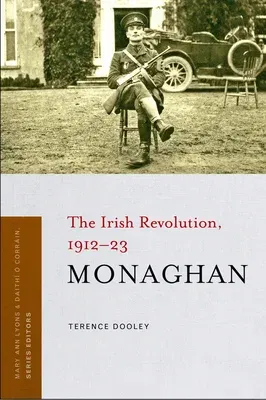In 1912, a bloodless revolution had already taken place in Monaghan that
resulted in the overthrow of one ruling elite, which was replaced by
another. What began in 1912 with the signing of the Ulster Solemn League
and Covenant, followed the next year by the founding of the Ulster
Volunteer Force, might be considered from the Protestant perspective as
an attempted counter-revolution. It was, at the very least, a determined
effort to remain part of the British empire, the spiritual and ancestral
home of Monaghan Protestants. But constitutional nationalists were not
prepared to give up the gains they had made. Separatist nationalists
wanted more, and so for them the 1916 Rising represented the beginning
of unfinished business. In this political maelstrom there were agrarian
agitators who sought the final solution to the land question; 2,500
young men who went to war, one-fifth of whom never returned and the
others who did returned to a very changed country; and paramilitaries
who divided along sectarian lines. Thus, between 1912 and 1923, Monaghan
politics and society were transformed for a second time, not least of
all by the imposition of the border with all the attendant social and
economic problems partition brought. Because of Monaghan's
socio-religious demographic and its borderlands location, this book
offers an intriguing insight to how the period 1912-23 played itself out
at local level. (Series: Irish Revolution 1912-23) [Subject: Irish
Revolution, Easter 1916, Monaghan, Irish History, Irish Studies]

